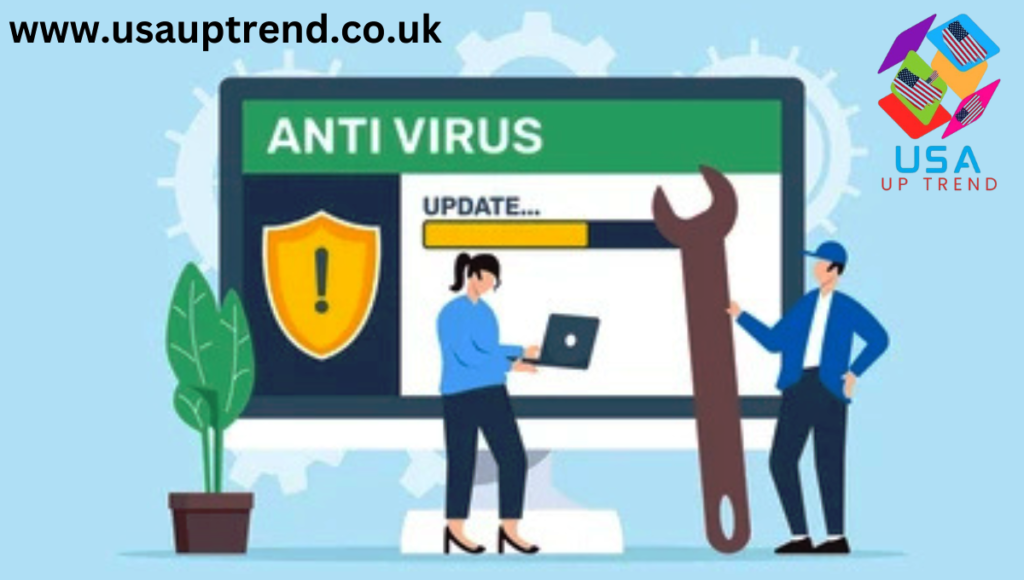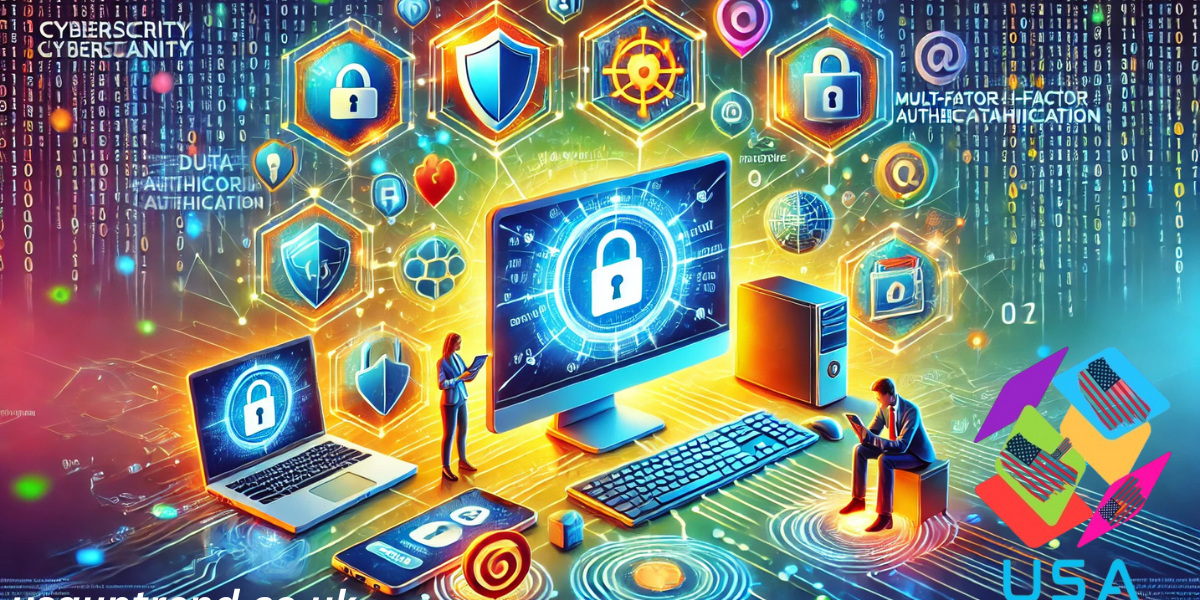In the present day digital world, no other time has been so rife with threats to cyber security. Home users are daily under the threat of hackers, malware, and phishing attacks. Therefore, How Can You Protect Your Home Computer Cyber Awareness? Ensuring proper security measures, timely updating of software, and practicing safe online behaviors are the main assets. This truly defines cyber awareness: taking proper action against cyber threats and an overall secure environment to work on.
The Importance of Cyber Awareness for Home Computers
Cyber awareness is the primary initiative toward protecting one’s home computer. It allows users to appreciate threats that would typically work against them, avoid them, and take preventive measures. Lack of cyber awareness is one factor that pulls many to cybercrime. The more users understand online threats, the more they reduce the risks and guard their personal data.
Common Cyber Threats to Home Computers
| Malware Attacks | Malicious software from viruses, through worms, and cranky ransom ware will destroy your system and pilfer its data. |
| Phishing Scams | Fake e-mails and messages are designed to trick users into revealing sensitive information. |
| Weak Passwords | Simple or easily memorized passwords are just too weak against being hacked. |
| Unsecured Wi-Fi | Basic hacks can easily breach weak Wi-Fi security to connect with your personal networks without much hassle. |
| Obsolete Software | An old program contains vulnerabilities that can be exploited by a cybercriminal. |
| Spyware and Adware | These programs observe what a user is doing online or what information he inputs on his keyboard and collect information without the consent of the user. |
| Social Engineering Attacks | Psychologically skilled hackers trick users into divulging confidential information. |
| Identity Theft | Cybercriminals forge documents to steal some information to perpetrate fraud or financial crimes. |
| Key loggers and Credential Theft | Malicious Codes that track key strokes to get login credentials. |
Essential Tips to Protect Your Home Computer
1. Install and Update Antivirus Software

Antivirus software represents the first barrier of protection against malware. Install and keep it up to date with a decent antivirus program. Then, new threats are detected and removed before causing harm.
2. Keep your software updated along with your operating system
Regular updates patch security vulnerabilities and enhance protection; hence, set your system to update automatically so you are always equipped with the latest security patch.
3. Use Strong, Unique Passwords
A password is what helps keep online accounts safe and secure. Follow these guidelines:
- Use a minimum of 12 characters
- Use both uppercase and lowercase numbers and symbols
- Use a different password for every account
- To prevent any potential intrusion, the best practice is to ensure that secure passwords are stored in a safe place thanks to a password manager.
4. Activate Two-Factor Authentication
This will further advance the security on your account since even if a thief steals your password; they might end up jamming on a mute horn since they cannot access your account without the verification procedures.
5. Secure Your Wireless Network
Hackers find it very easy to gain unauthorized access to an open wireless network. Protect your home network by.
- Using WPA3 encryption.
- Changing the default router password.
- Disabling remote access.
- Regularly updating router firmware.
6. Avoid Suspicious Emails and Links
Many hackers try to steal information by sending phishing emails. Always verify email senders and avoid clicking unknown links. If an email asks for personal details, verify the source before responding.
7. Regular Backup of Your Data
There are several methods of backing up your files to help prevent them from being lost in an event of an attack. This can include cloud storage solutions or backing up your files to an external hard drive. Schedule automatic backups to avoid manual hassle.
8. Limit Personal Information Sharing Online
Cyber criminals are always looking for sensitive information online. Monitor and be careful of what to post. Moreover, set up the privacy settings so that more people can’t have access.
9. Use a Firewall
A firewall can monitor all incoming and outgoing traffic, thereby stopping activities from any source considered as dubious. Please also make it a point to configure your computer firewall properly or get some assistance if you’re not the geek sort.
10. Instruct family members about cyber issues
Educate everyone in the house on how not to misuse the internet. Teach children and seniors that a cyber-threat is something they need to be careful about when securing their devices.
Additional Cyber security Measures
11. Use Encrypted Communication
This would be the responsibility of encryption tasks, which protects your online communications from being observed. For discussions that are quite sensitive, encrypted messaging apps and encrypted email services should be utilized.
12. Avoid Public Wi-Fi for Sensitive Transactions
Public internet networks are mostly insecure, hence vulnerable to hacking. This means it gives easy access to most of the data in your device. Use a VPN (Virtual Private Network) to encrypt your internet connection every time you make use of public internet.
13. Implement Parental Controls
They often download malware with their favorite or favorite applications inadvertently. You might want to observe and limit kids’ access, using parental control.
14. Regularly Monitor Account Activity
Keep track of your online accounts for any unusual activity. Set unauthorized login attempts into alert mode to change the passwords if something went wrong.
15. Dispose of Old Devices Securely
Before getting rid of or selling old computer gear, people should always clear all data securely by using data wiping tools so that unauthorized access to their personal information can be kept at bay.
16. Lock Your Smart Home Devices
Many smart devices connect to home computers. Ensure your smart home gadgets are protected by:
- Changing default passwords.
- Keeping firmware updated.
- Using a separate network for IoT devices.
17. Use a Secure Web Browser
Some web browsers are safer to use. Select browsers that have native privacy protection built-in and use pop-up blockers to deter annoying advertisements.
18. Enable Auto-Lock and Device Encryption
Auto-lock ensures someone cannot get access to your computer when walking away from it. Encryption keeps your data secure even if your device is stolen.
19. Avoid Downloading Untrusted Software
Downloading software from sources that are not verified can result in malware infection. Always download applications from official websites or app stores.
20. Create Guest Accounts for Shared Computers
In case several individuals use your home computer, it is advisable to create different accounts with limited permission. This would prevent unauthorized access to sensitive data.
How Can You Protect Your Home Computer Cyber Awareness? Best Practices
To keep oneself cyber-aware, one must be constantly learning-buying knowledge and learning how to adapt to all other forms of new threat at all times. Follow these best practices.
- Stay updated with cyber security news.
- Use encrypted messaging apps.
- Refrain from performing any sensitive transaction over public Wi-Fi.
- Try to assess the privacy settings on social media.
- Scan your credit card and bank statements for suspicious transactions.
FAQs
1. How frequently should I be updating my antivirus software?
Update antivirus software daily. Most antivirus programs are set for automatic updates against new threats.
2. What is the safest way to store your passwords?
It is advisable to store your passwords using an app or a manager. An encrypted password manager securely protects and stores them in a way that makes them unavailable to unauthorized people.
3. Can a firewall provide complete protection for my home computer?
A firewall is important, but it alone is not enough. A combination firewall, antivirus software install, two factor authentication enablement, and safe surfing behavior need to be implemented on the computer for its protection.
4. Why is the formation of strong passwords crucial?
Strong passwords can become tough to guess or crack, and weak passwords are easily vulnerable to brute force attacks.
Conclusion
In the fast paced changing terrain of cybersecurity, threats keep evolving, making this time ever so important for us to maintain cyber awareness. Some basic security measures will help protect your home PC against malware, phishing scams, and hacking attempts. How can you protect your home computer cyber awareness? Being alert, keeping strong passwords, regularly updating software, and self-educating about cyber security threats are necessary. An active approach makes sure that you have a safe and secure digital experience for yourself and your family.
Read more Articles About Technology and other categories at usauptrend.co.uk




